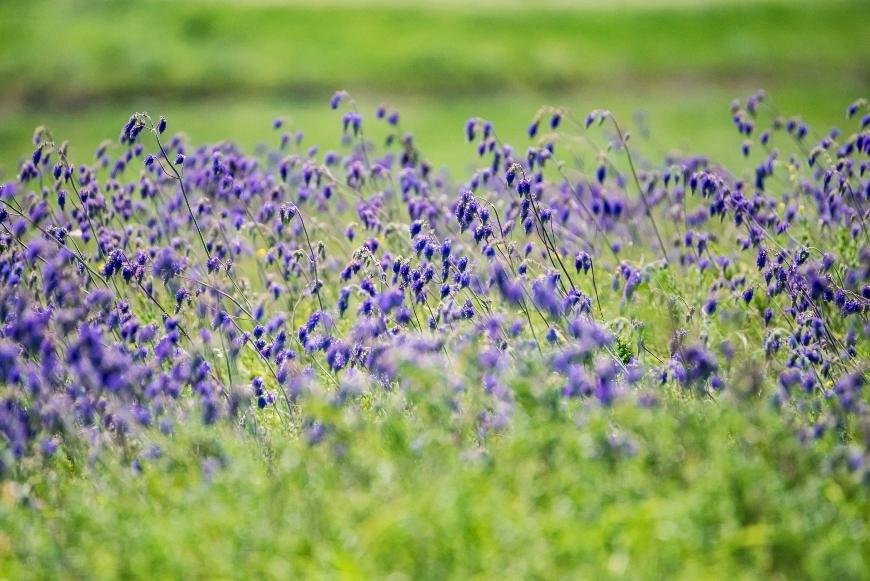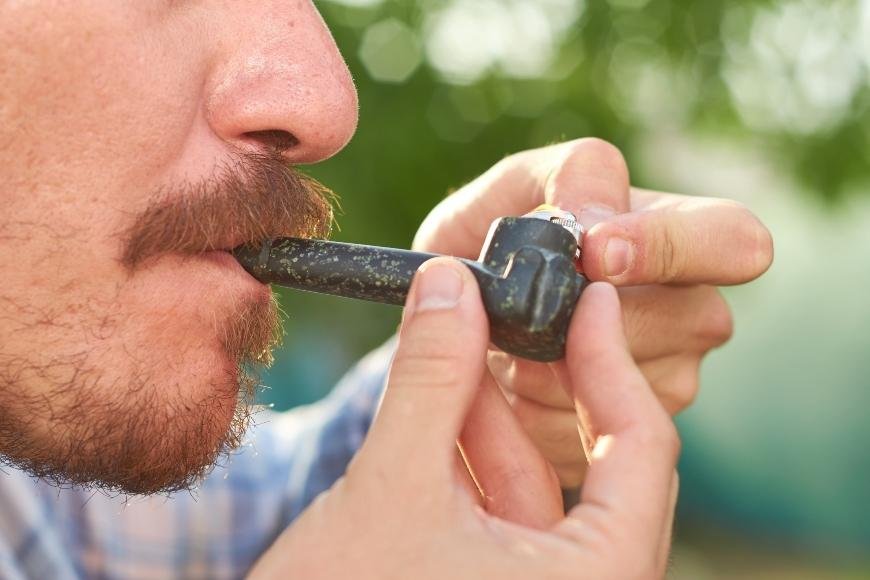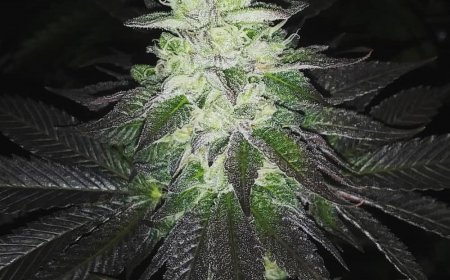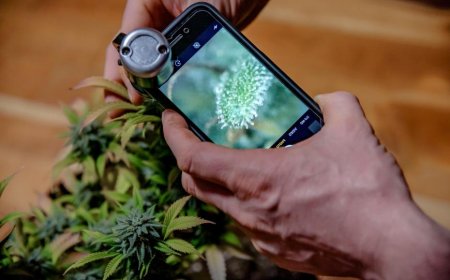What Is Salvia Divinorum
Learn about Salvia Divinorum, its effects, side effects and safety. Get informed on what is Salvia Divinorum in this blog post for young adults who use drugs.

If you're looking for a comprehensive guide on Salvia Divinorum, then you've come to the right place. In this post, we'll take an in-depth look at Salvia Divinorum and its active ingredient to understand their history, current status, effects on the mind and body, as well as how it alters perception and induces hallucinations. From its history of use in traditional healing practices to its current status as a Schedule I drug in the United States, we'll cover it all.
Discover the consequences that Salvia Divinorum has on one's mind and body, such as how it modifies perception and leads to hallucinations. We'll also delve into the risks associated with using this substance, such as potential adverse reactions and psychological distress.
Additionally, we'll discuss various methods of consumption and dosing recommendations for those who choose to experiment with Salvia Divinorum. And finally, we'll touch upon some legal considerations surrounding possession and distribution of this substance.
By the conclusion of this article, you will have attained a comprehensive comprehension of Salvia Divinorum - its advantages and risks. Whether you're considering trying it yourself or simply want to expand your knowledge on psychoactive substances like these - keep reading!
Table of Contents:
- What is Salvia Divinorum?
- Effects of Salvia Divinorum
- Side Effects of Salvia Divinorum
- Is Salvia Divinorum Safe?
- FAQs in Relation to What is Salvia Divinorum
- Conclusion
What is Salvia Divinorum?

Salvia divinorum, also known as Diviner’s Sage or Magic Mint, is a perennial plant native to the cloud forests of Mexico. It has been used by indigenous cultures for centuries in spiritual and healing ceremonies. Salvinorin A, the active element of Salvia divinorum (Diviner's Sage or Magic Mint), is a naturally-occurring psychoactive compound that can induce extreme hallucinations when taken.
The effects of salvia divinorum vary depending on the dosage and method of ingestion. When smoked, it produces an intense but short-lived experience lasting up to 30 minutes with visual distortions and dreamlike states being common effects reported by users. When taken orally via tea or tincture form, its effects are more subtle but longer lasting (up to several hours). In either case, users report feeling relaxed yet energized after their trip with improved moods and enhanced creativity often noted as well.
Salvia Divinorum is an herb with psychoactive properties that has been used for centuries by shamans and healers. It can produce intense psychedelic effects when taken in large doses, making it a powerful substance to explore carefully. The next heading will discuss the potential effects of Salvia Divinorum on its users.
Effects of Salvia Divinorum
Salvia divinorum, a native Mexican plant with psychotropic properties, has been used by Mazatec shamans for ages in spiritual and curative rituals. The active ingredient in salvia, known as salvinorin A, produces powerful hallucinogenic effects when taken. The dose and method of ingestion can have a major impact on the effects experienced.
When ingested, salvia produces powerful psychedelic experiences that typically last between five and fifteen minutes. Users may encounter altered visual perceptions, for example items changing or moving, a sense of time and space being distorted, intensified senses of color and sound, feelings of detachment from the body or environment around them, hallucinatory visions (viewing nonexistent things), confusion or disorientation. These effects can be quite intense but usually dissipate within 15 minutes after consumption.
Psychological dependence, greater susceptibility to depression, memory impairment, difficulty focusing, judgemental lapses that can lead to reckless behaviour, panic attacks, sleep disruption such as insomnia or other sleeping problems and irritability may be long-term consequences. Nausea/vomiting/diarrhea can be experienced due to ingestion methods such as smoking or vaporizing the leaves directly without proper preparation techniques like boiling them into a tea first before ingesting them orally via tinctures drops etc. Increased heart rate and blood pressure may also occur due to its stimulant properties found in some varieties of this herb; therefore it is important to do research beforehand if you decide it is something you want try out recreationally responsibly.
Salvia divinorum may have varied impacts, but it is essential to be cognizant of the potential adverse effects prior to employing this substance. As such, let us take a closer look at the potential side effects of salvia divinorum in order to make an informed decision when considering its use.
Side Effects of Salvia Divinorum
The side effects of salvia divinorum are varied and can range from mild to severe. A feeling of unsteadiness, possibly accompanied by nausea or vomiting, is the most frequent outcome of taking salvia divinorum. Other physical effects include an increased heart rate, dry mouth, dilated pupils, sweating, trembling and muscle twitching. Salvia divinorum can also cause psychological changes such as altered perception of time and space, confusion and disorientation. In some cases, it has been reported to cause vivid visual and auditory hallucinations, as well as distorted thinking.
Given its recent introduction to the recreational drug market, long-term impacts of salvia divinorum are still being investigated and understood. Although rare, some users have reported experiencing flashbacks following use; however, there is no indication that regular consumption will result in addiction or dependency. Despite this, caution should be exercised when taking salvia divinorum as it can become a habit if taken excessively over time without appropriate breaks for recuperation between doses.
Pregnant women should stay away from Salvia Divinorum as its effects on expecting mothers and their babies are unknown; thus, it may pose a potential risk. Those with mental health issues should use caution when taking Salvia Divinorum, as it could exacerbate their existing symptoms if misused or overused. It is imperative that those who use other substances, such as prescription drugs, consult their physician prior to utilizing Salvia Divinorum; this is due to the possibility of undesirable interactions between its components and chemicals present in said products.
The potential repercussions of consuming Salvia Divinorum should not be overlooked; its effects can be serious. It is important to understand the risks associated with using this drug before making any decisions about taking it, so let's explore if Salvia Divinorum is safe for recreational use.
Is Salvia Divinorum Safe?

Salvia divinorum, commonly known as the “sage of the diviners” or simply “salvia”, is a psychoactive plant native to Mexico. For many years, shamans and healers have been utilizing this native Mexican plant for its healing powers in ceremonies and rituals. In recent years, it has become popular among recreational drug users who seek its hallucinogenic effects. But how safe is salvia?
When taken responsibly, salvia can be relatively safe when compared to other drugs like alcohol or marijuana. Still, certain dangers connected to its consumption ought not be disregarded.
The typical result of consuming salvia is a powerful sensory experience with visions and sounds that may endure up to 60 minutes. The experience of salvia for novices can be quite jarring, potentially inducing unease and even panic if there isn't a knowledgeable individual present. Additionally, some people experience physical symptoms such as nausea or dizziness while under the influence of salvia which could lead to accidents if proper safety measures aren't taken beforehand (such as having a designated driver).
Given its legal status in many countries, procuring salvia illegally carries certain risks such as running afoul of the law and potentially ending up behind bars. Therefore, caution should be taken when engaging in this activity to avoid the potential legal and psychological repercussions. Moreover, with frequent use over time comes a heightened risk of developing psychological dependence on the drug's effects which can quickly spiral into addiction if left unchecked.
Overall, when used responsibly and within recommended dosages (which vary depending on your weight), salvia divinorum can provide unique experiences without any major health risks attached. Despite its legality, caution should be taken when experimenting with any type of psychoactive substance.
FAQs in Relation to What is Salvia Divinorum
What is the meaning of Salvia divinorum?
Salvinorin A, the active ingredient found in Salvia divinorum, can cause profound psychological and spiritual experiences when ingested. Salvia divinorum can produce powerful visual and auditory hallucinations, as well as feelings of spiritual insight and connection with the divine. The effects typically last between 5-30 minutes depending on how much is taken. Though legal in some places, its use should be done with caution and under the supervision of knowledgeable professionals or shamans who understand possible risks and advantages.
What is the medicinal purpose of salvia?
For many years, Salvia has been utilized in Mexican and Central American societies for its healing properties. For centuries, Salvia has been used in traditional Mexican and Central American cultures for its purported medicinal benefits, which may include alleviating pain, promoting spiritual healing, and even treating mental health issues such as depression or anxiety by interacting with the brain's serotonin receptors. Salvia’s active compounds are thought to interact with the brain’s serotonin receptors which could potentially produce a calming effect on the user. However, salvia is not regulated by any government agency so it should be used cautiously under medical supervision if at all.
How toxic is Salvia?
Salvia is a potent psychoactive plant that can produce strong effects, even in small doses. The DEA has placed salvia in Schedule I, indicating its potential for misuse and addiction. Given its potential to cause mental and physical changes when taken in high doses or combined with other substances, salvia should be used cautiously. Therefore, caution should be exercised when using this drug and users should always seek medical advice before consuming any form of salvia.
What is the drug composition of Salvia?
Salvia is a psychoactive plant native to Central and South America. It contains the active compounds salvinorin A, divinorum, and diterpenoid. Salvinorin A is widely thought to be among the strongest naturally-occurring hallucinogens. Divinorum acts as an agonist at kappa opioid receptors in the brain while diterpenoid has sedative effects. All three components are believed to contribute to its powerful psychedelic effects when taken in high doses or with other substances such as alcohol or cannabis.
Conclusion
In summary, salvia divinorum is a plant that has been employed by certain societies to bring about changed states of awareness for centuries. It can produce strong effects on the mind and body, though its side effects are largely unknown. Given the current lack of research on






































































































































